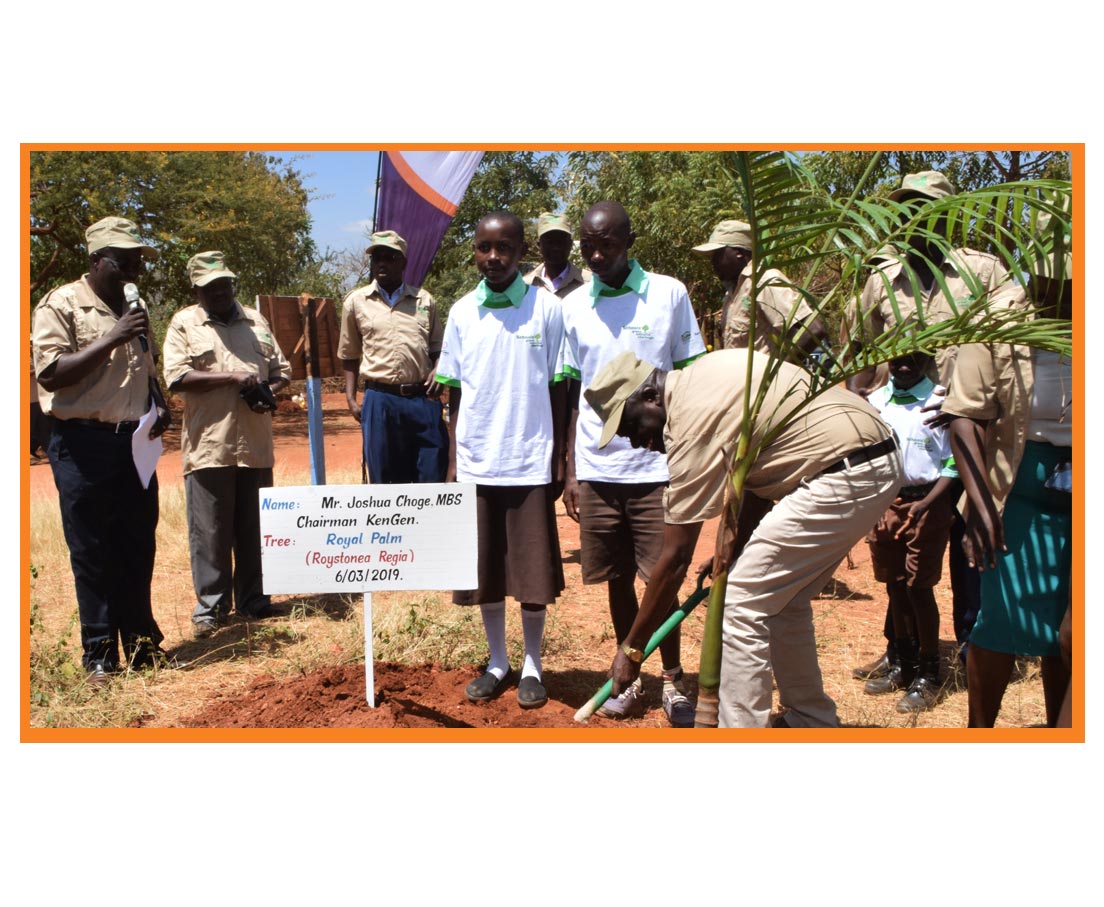Wikithuki Primary Wins in Phase III of Tree planting Competition.
Green leafy Mukau trees sway slightly at the odd breeze, as if in defiance of the scorching mid-morning sun at Kyusyani Primary School, Kitui County. The surrounding environment is in stark contrast to the school’s compound, with bare trees covered in fine dust. Yellow stunted maize plants in the nearby shambas tell of a tale of despair.
Yet despite the grim situation, Kyusyani Primary School is another example of how the Schools Green Initiative Challenge is reversing the effects of climate change. The institution was the venue of the awarding ceremony of the project’s Phase III winners and simultaneously the launch of Phase V on 6 March.
Wikithuki Primary School in Kitui County emerged top followed by Kwawanzilu Secondary School, Machakos. The host school, Kyusyani Primary was the second runners-up.
Competing against 99 other schools, the top three schools in Phase III recorded the highest number of trees surviving after a two-year period. They employed various management techniques on their 0.5 acre woodlots such as mulching and pruning, and further involved the collaboration of the students, teachers, Board of Management and neighbours.
READ: Exciting Mombasa Tour for GIC Phase II Winners
Speaking during the event, the guest of honour and KenGen’s Chairman, Joshua Choge said, “We’ve all witnessed the ravages of drought and we know part of this phenomenon is brought about by climate change caused by environmental degradation.
It is with this in mind that the company continues to invest in the GIC, which is dedicated to environmental conservation by promoting a tree planting culture with particular emphasis to the school children. These are indeed the best transformational agents for a better environment”, he added.
The KenGen Foundation, in partnership with Better Globe Forestry and Bamburi Cement Limited, implements the School’s Green Initiative Challenge, an ambitious 10-year afforestation project. Rolled out in 2013 with 81 schools in the semi arid counties of Embu and Machakos, the project has so far expanded to include Kitui, West Pokot, Turkana, Kwale, Mombasa, and Kilifi counties. It currently has over 500 school subscribed.
In her speech read by the Director of Corporate & Regulatory Eng. Simon Ngure, the MD and CEO of KenGen PLC Rebecca Miano said “It is worth to note that this unique program encourages environmental consciousness and conservation awareness among school children right from an early age to encourage and sustain their enthusiasm in caring for their environment as they grow to adulthood”.
SEE PHOTOS:
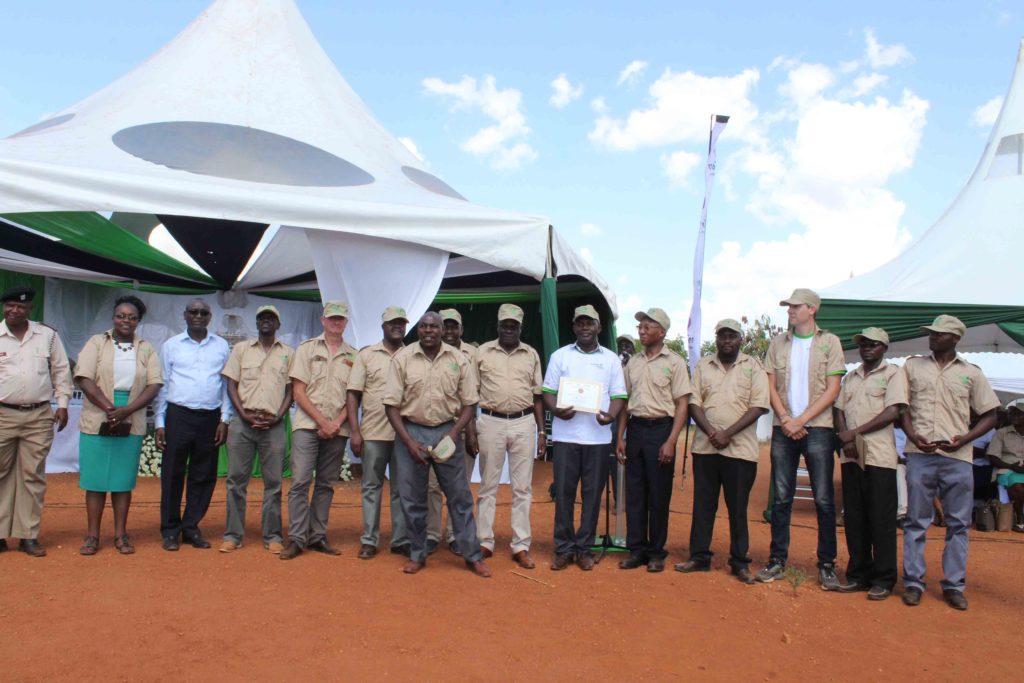
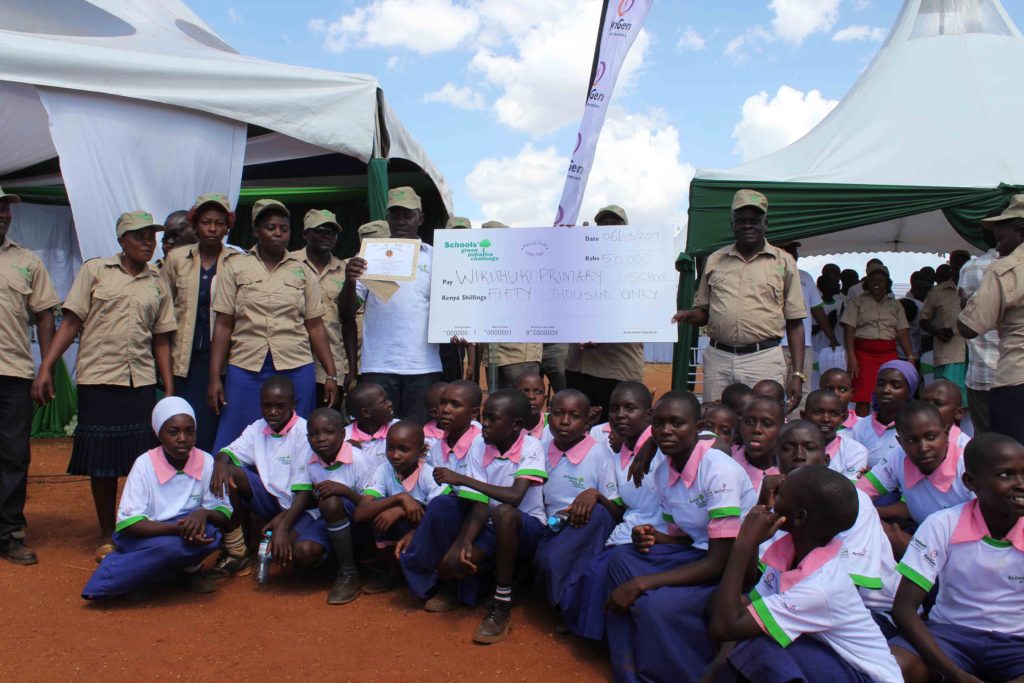
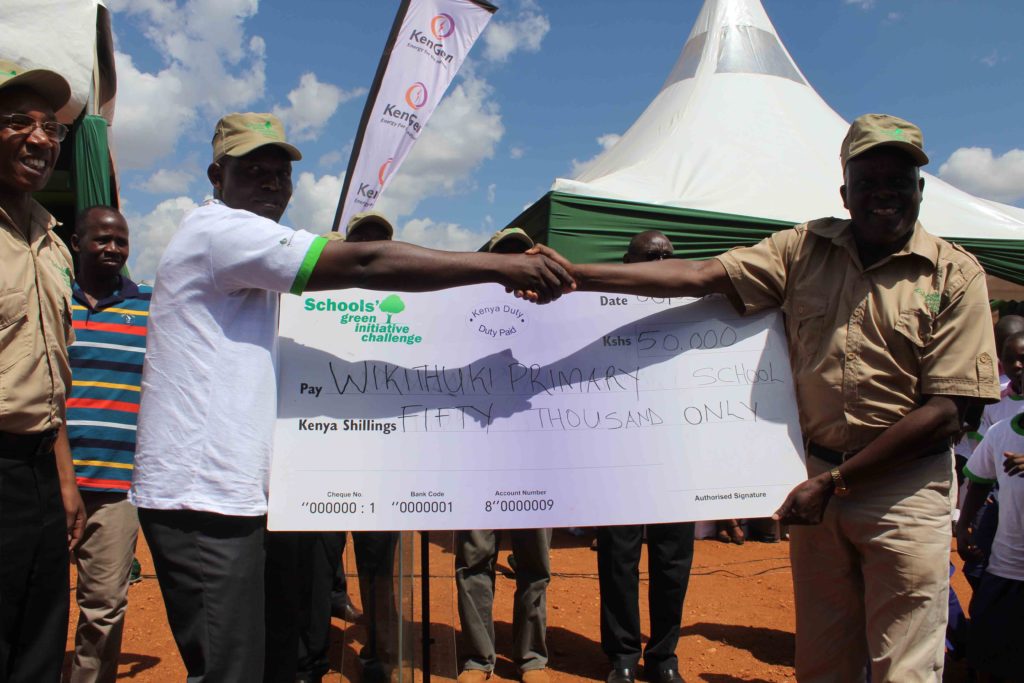
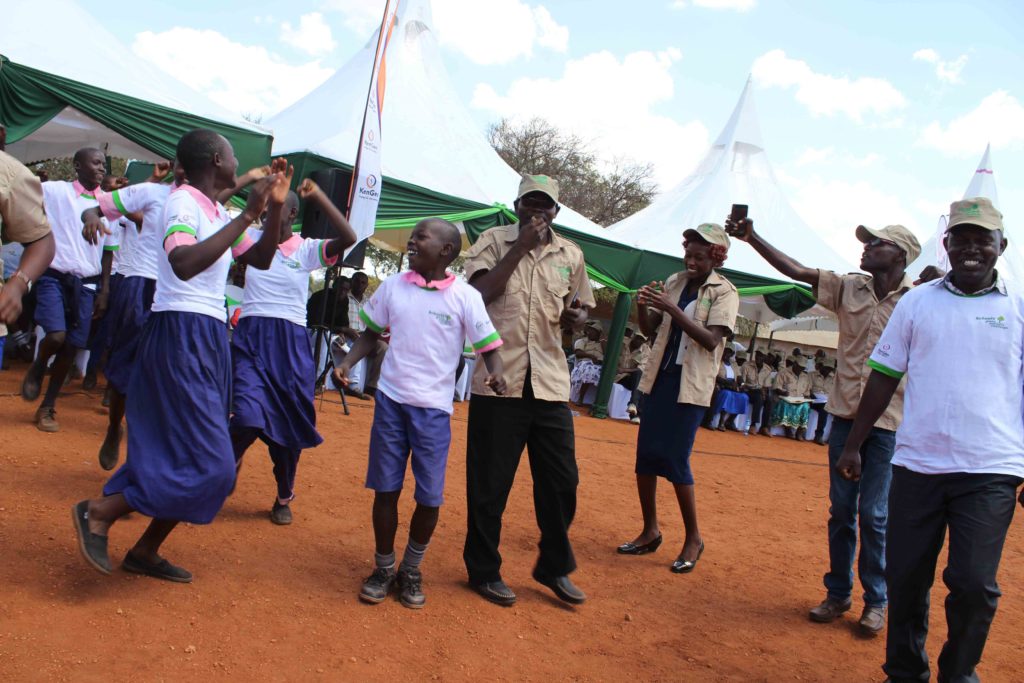
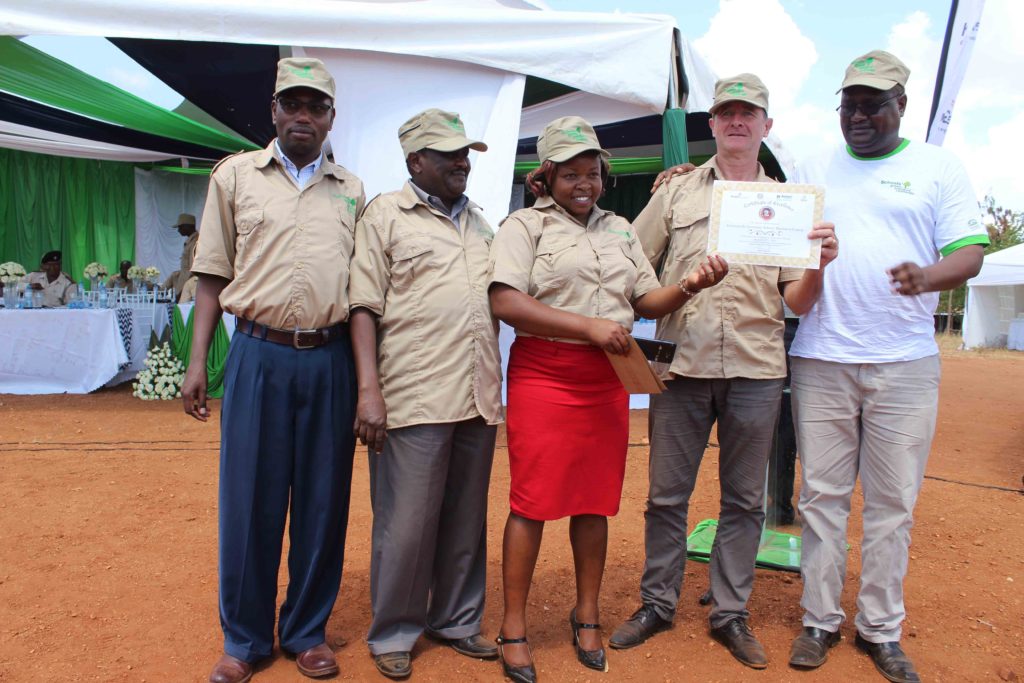
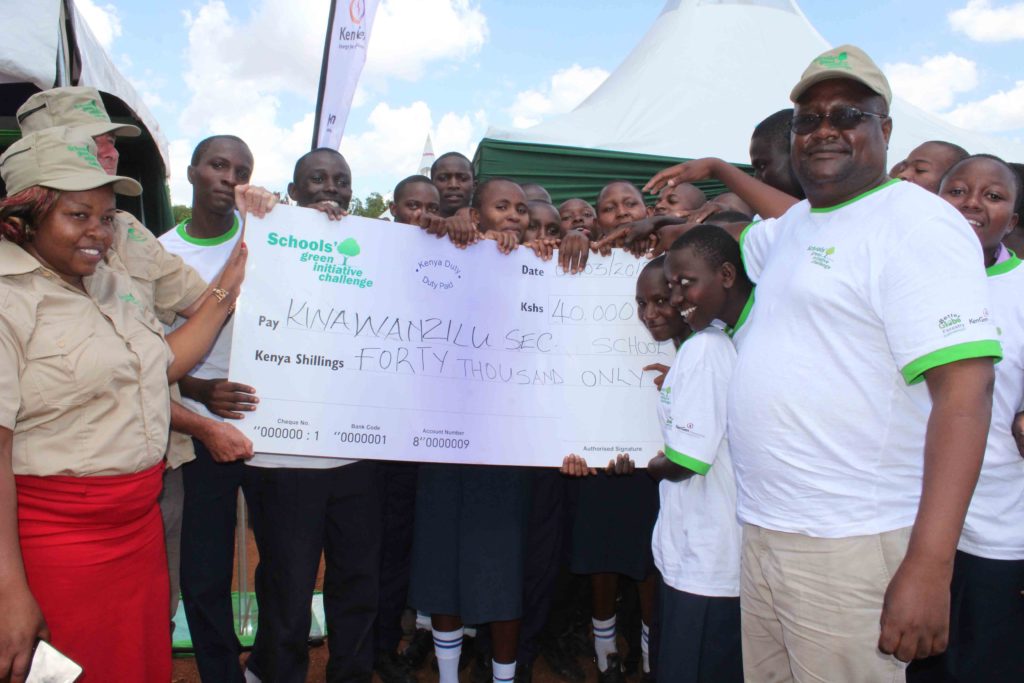
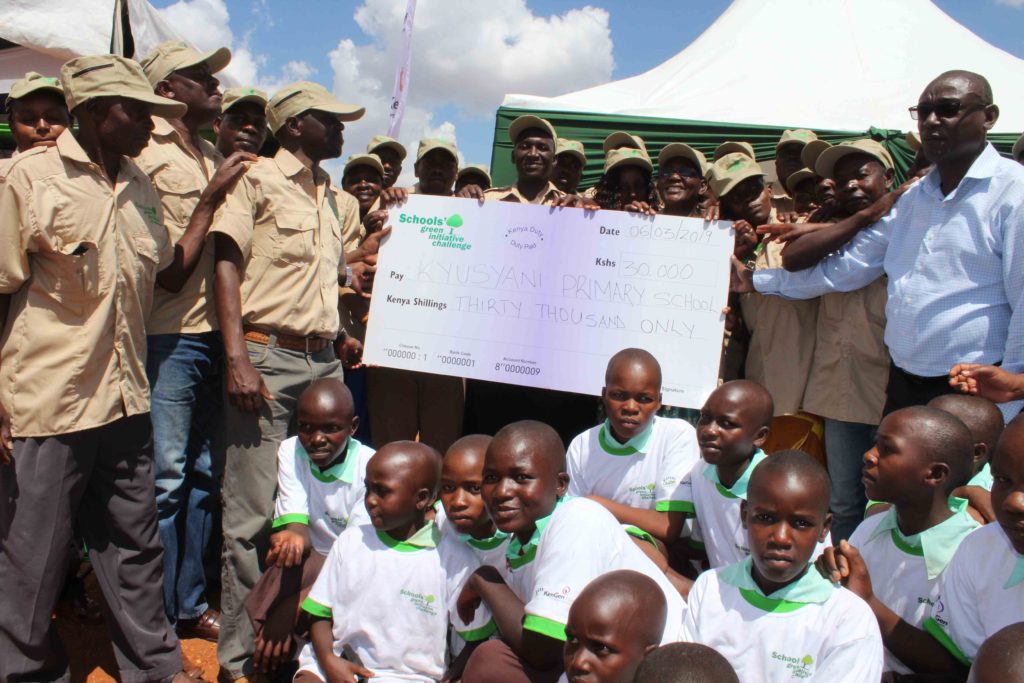
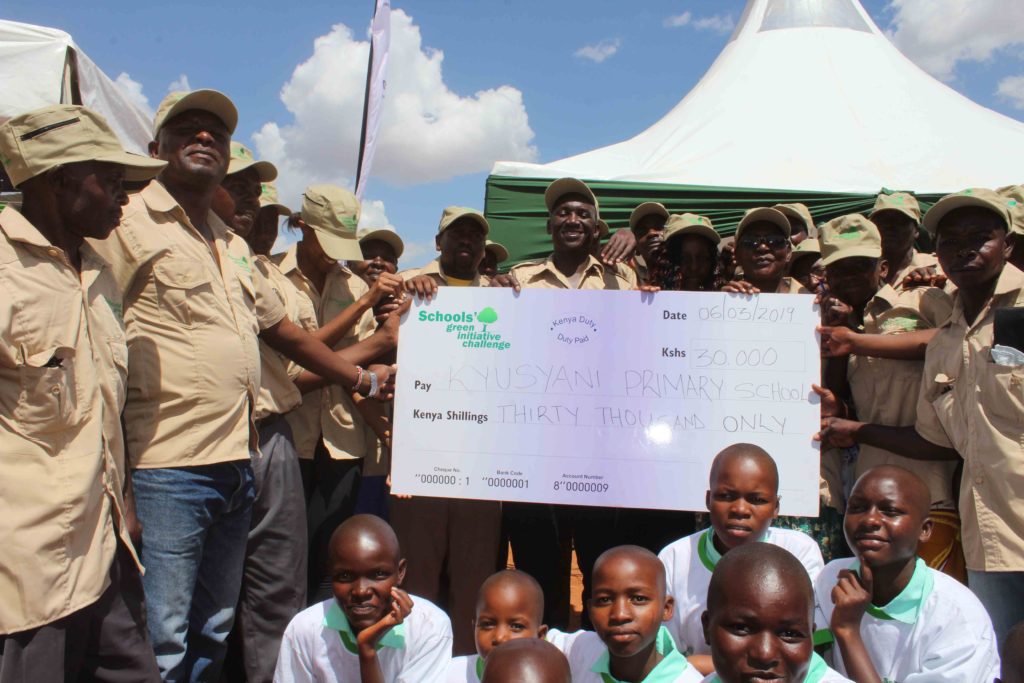
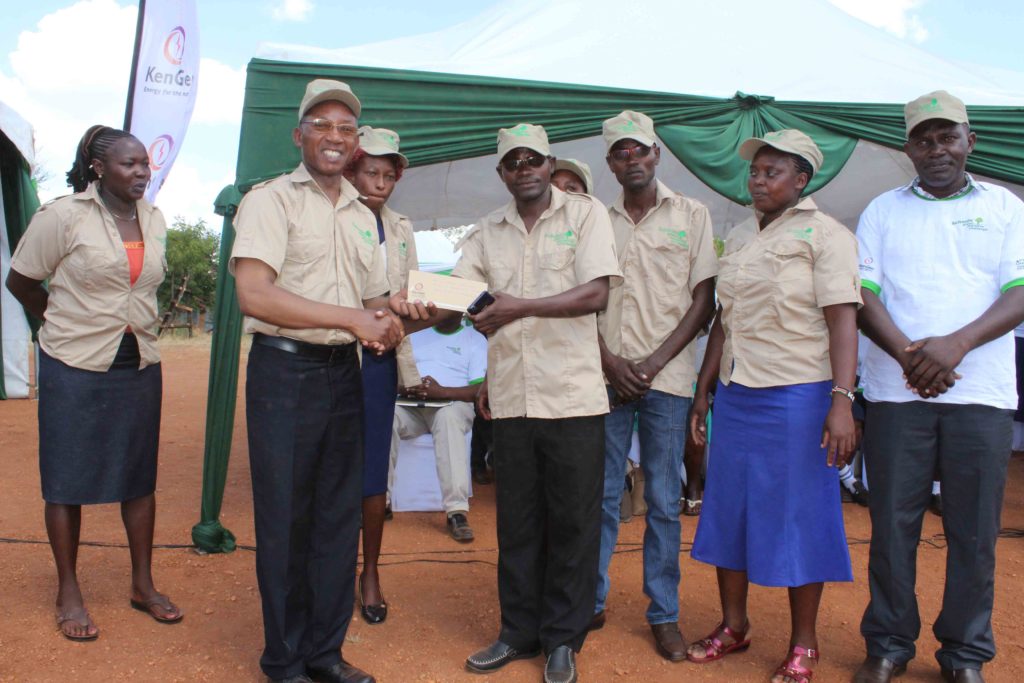
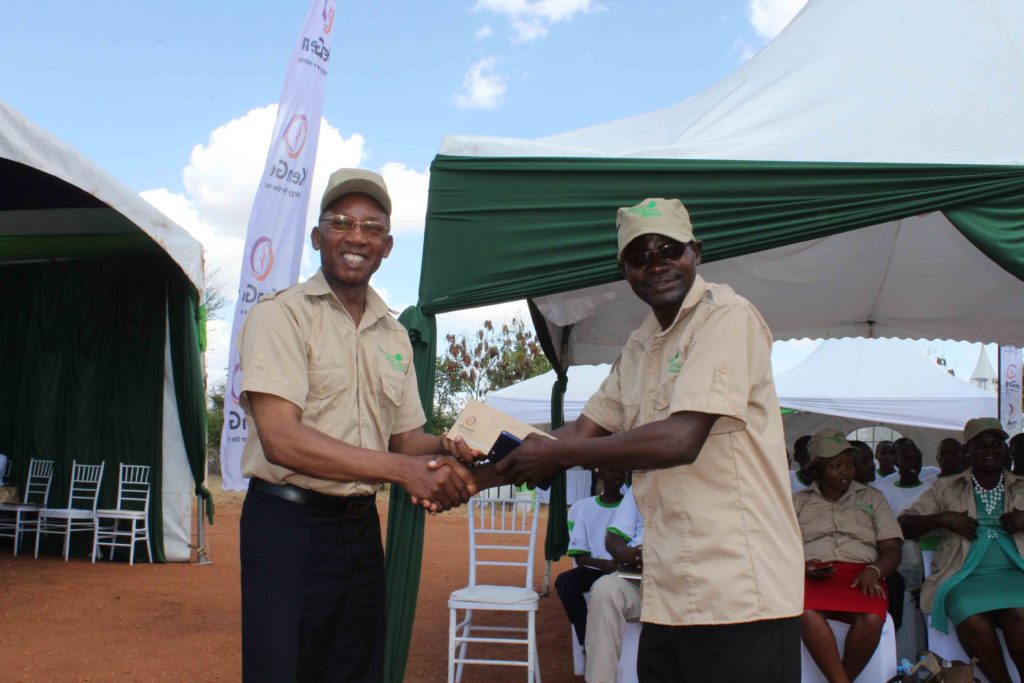
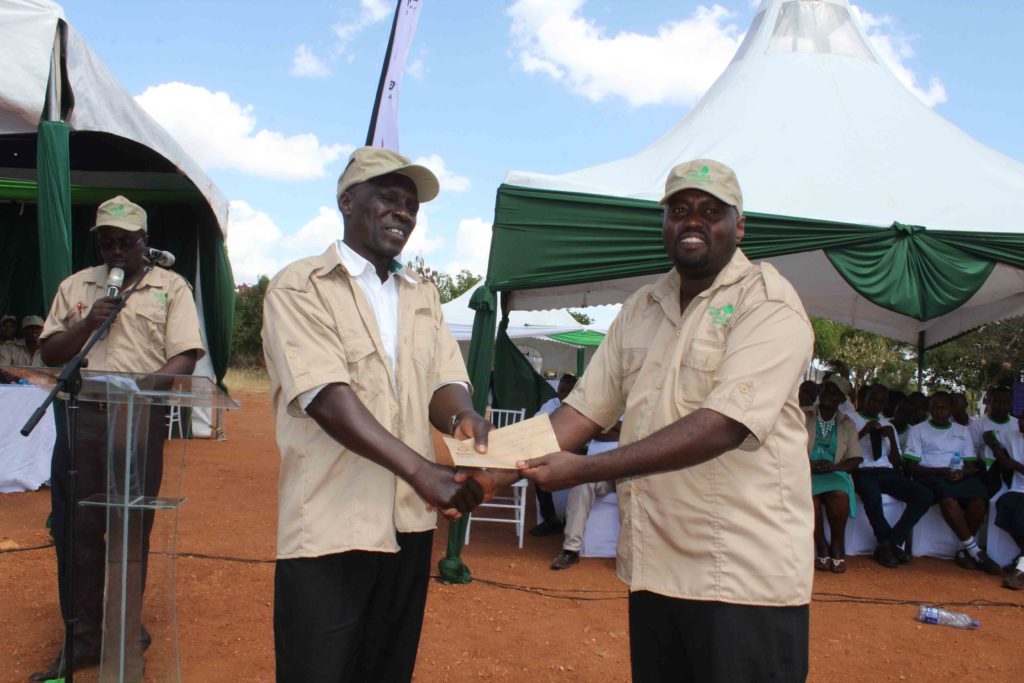
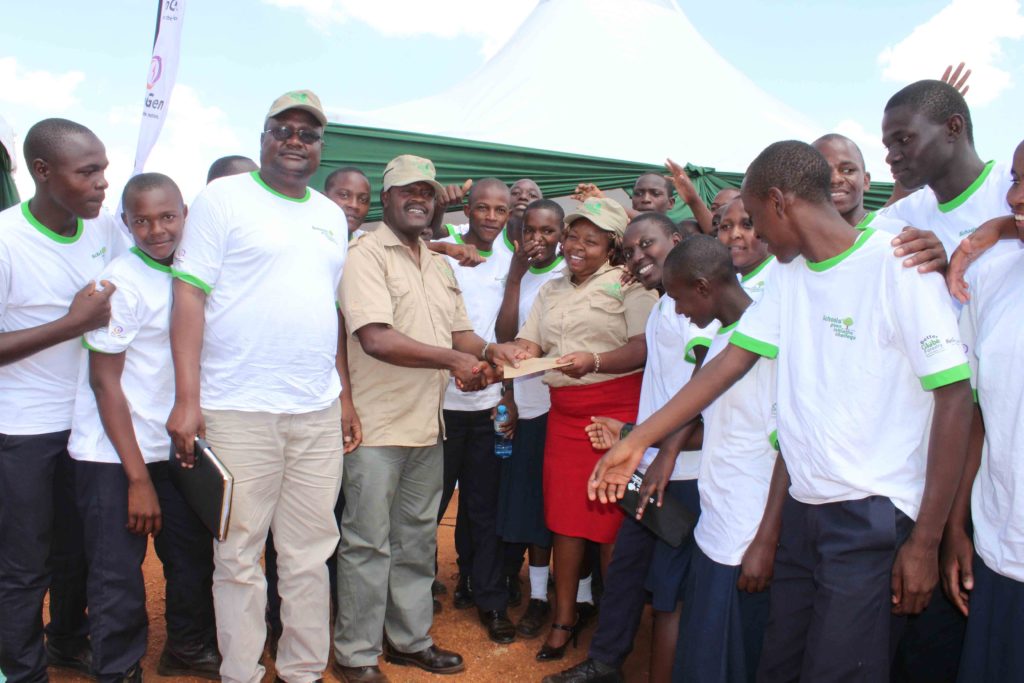
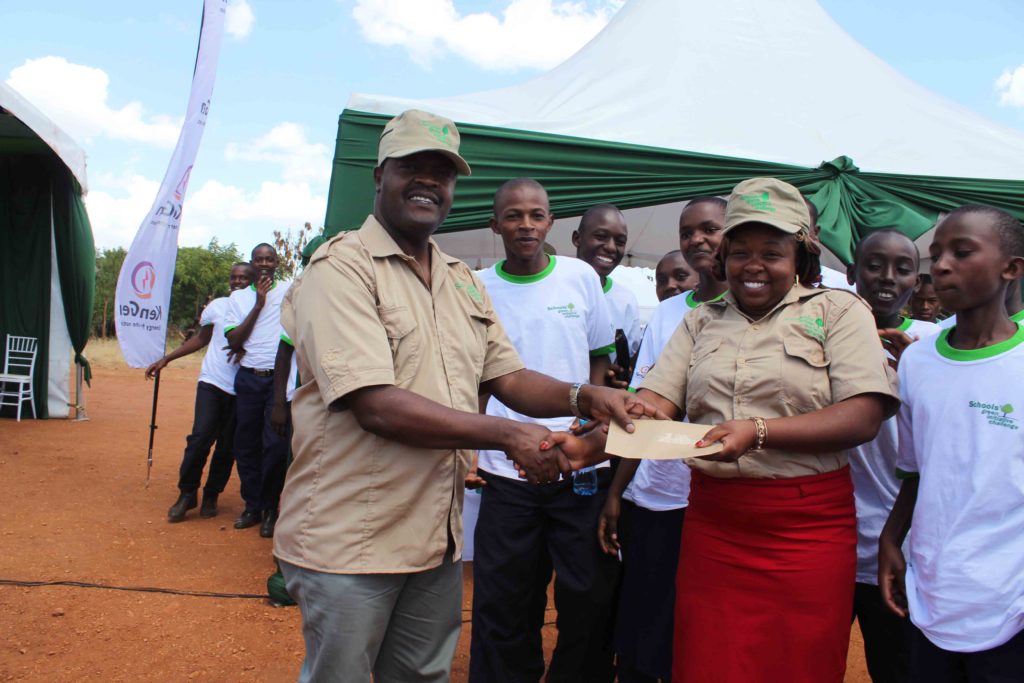
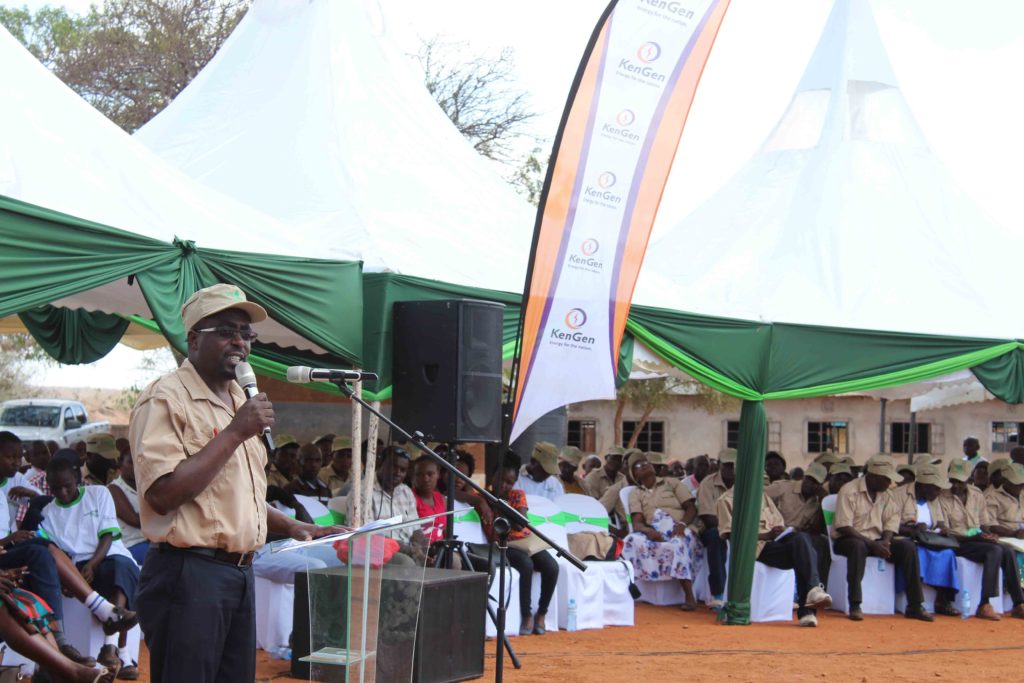
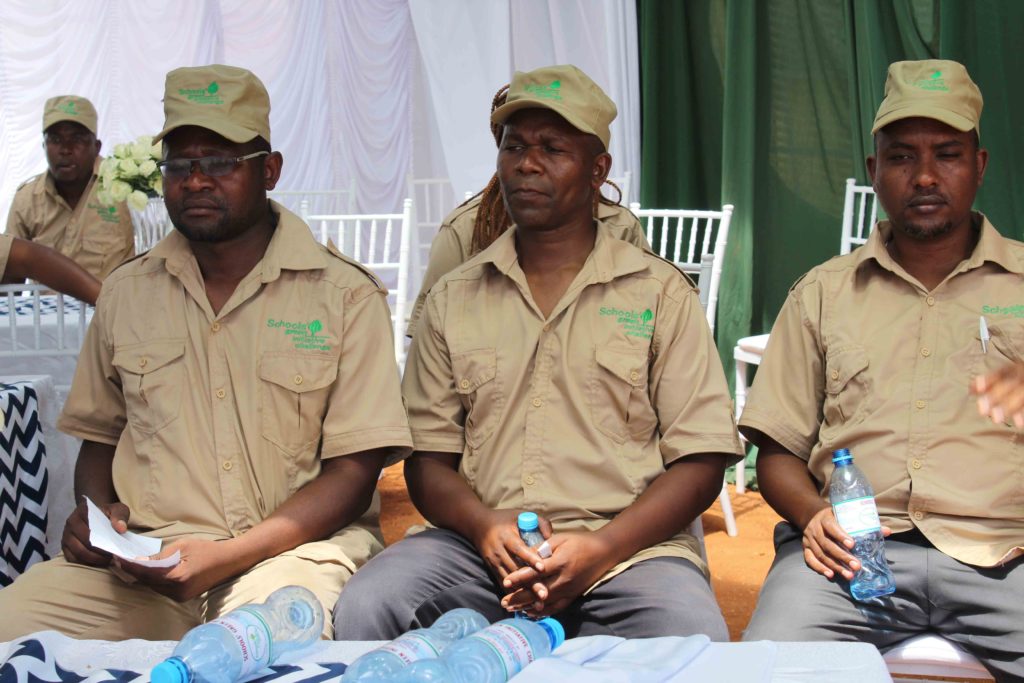
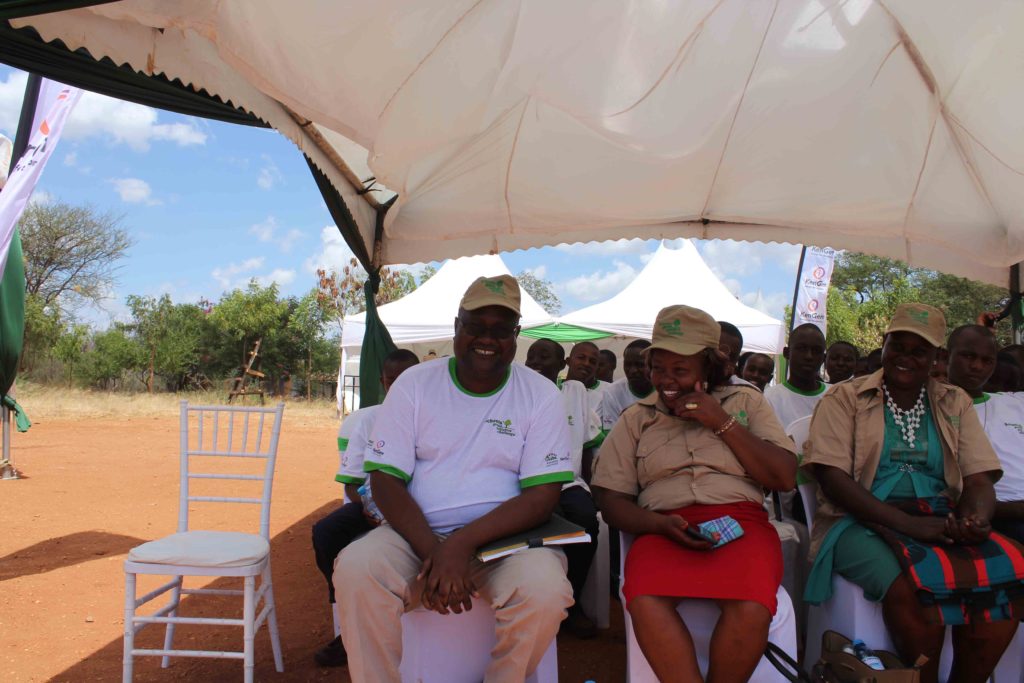
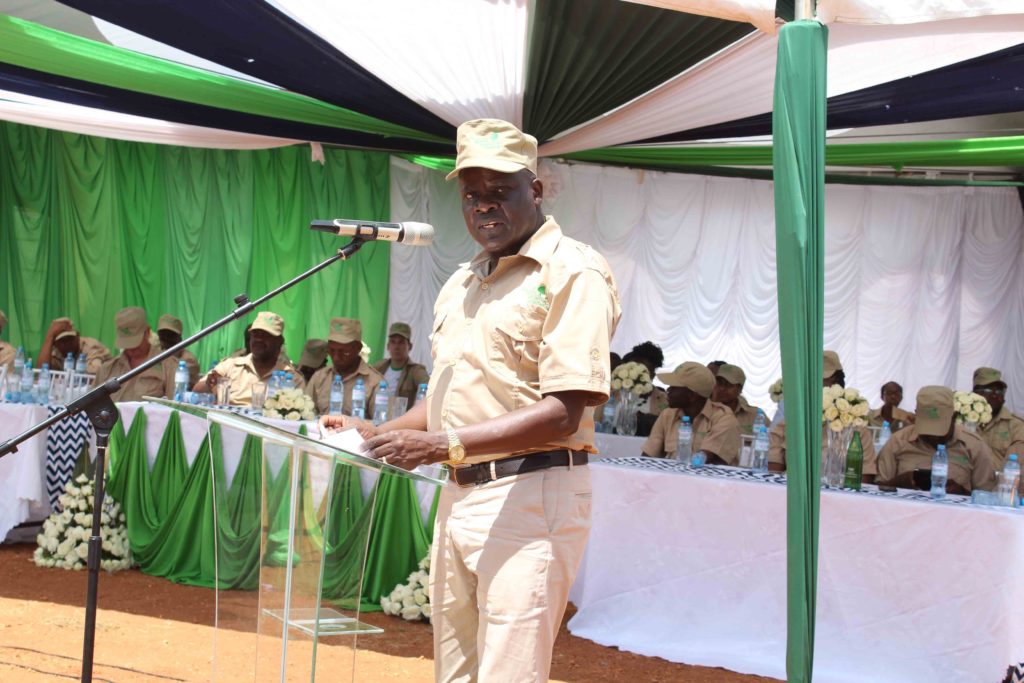
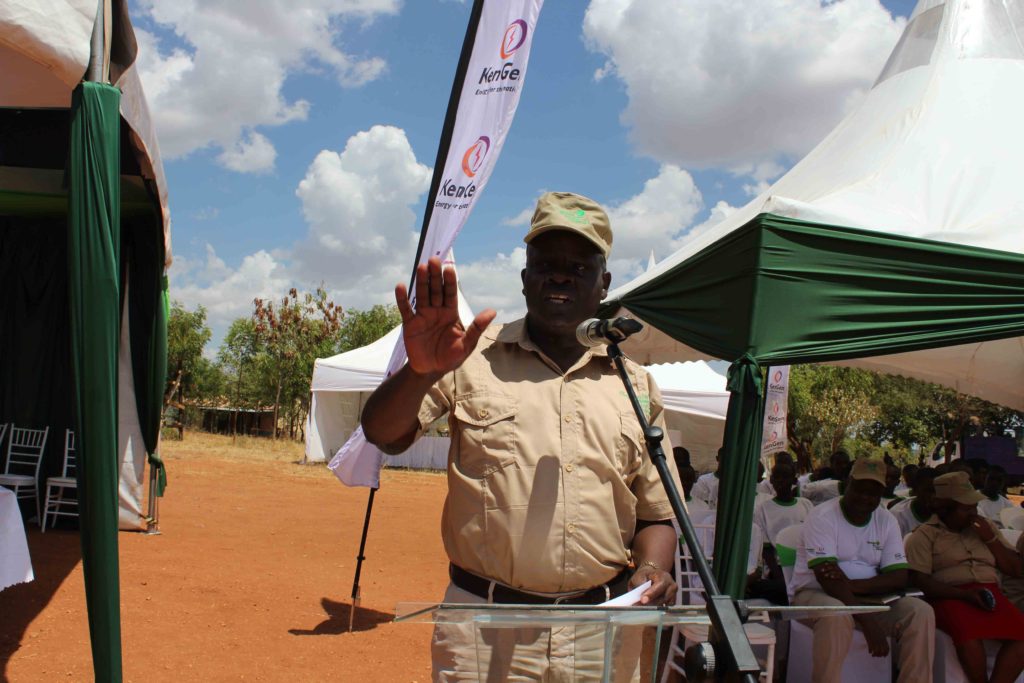
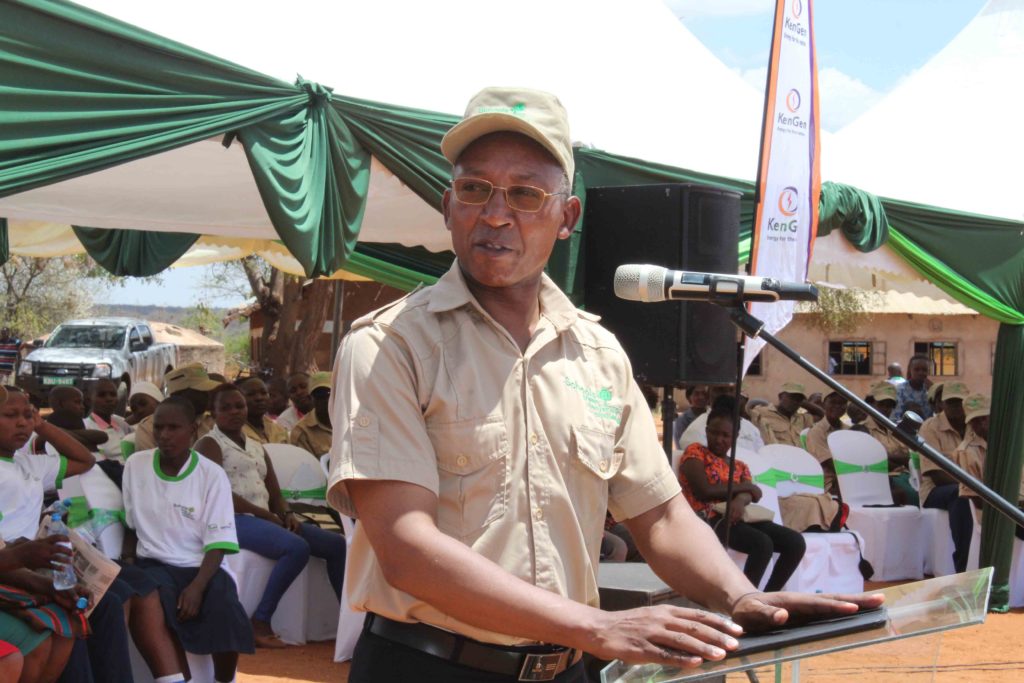
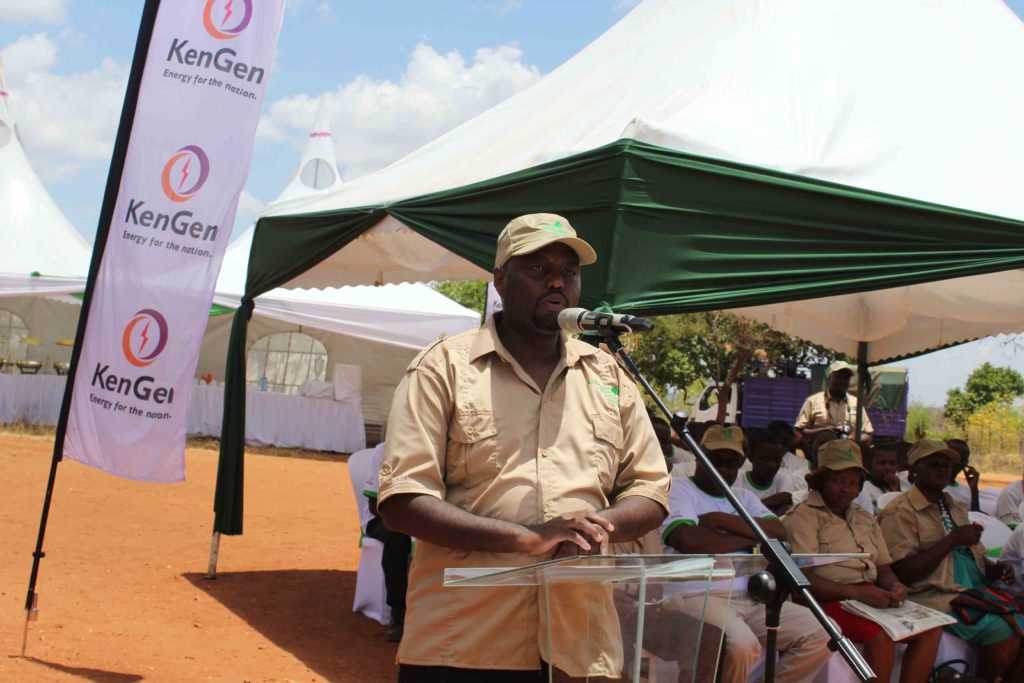
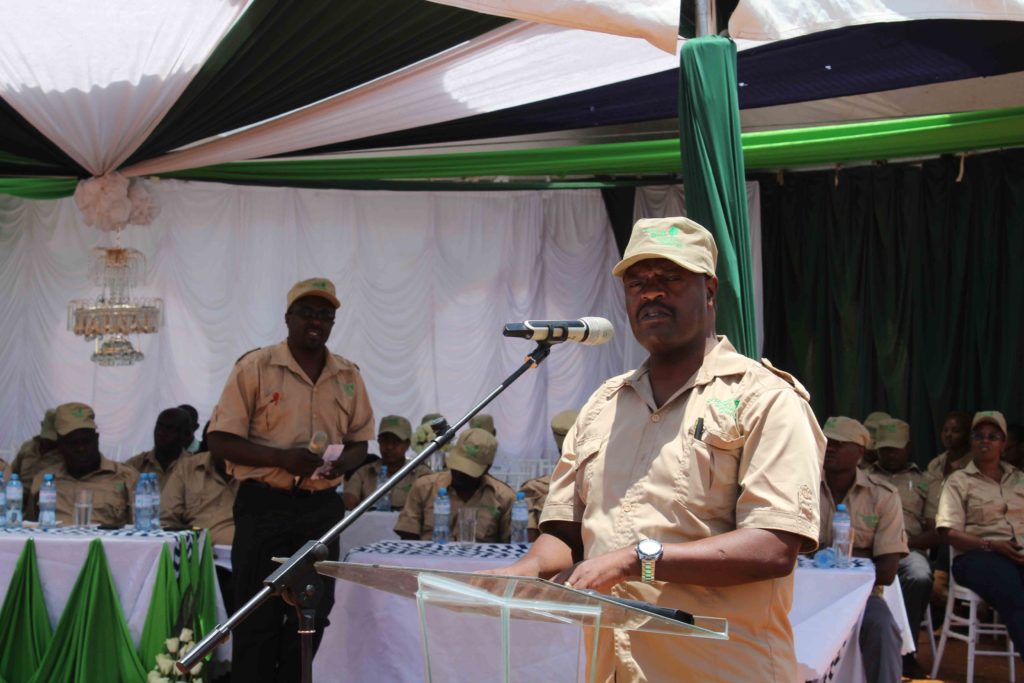
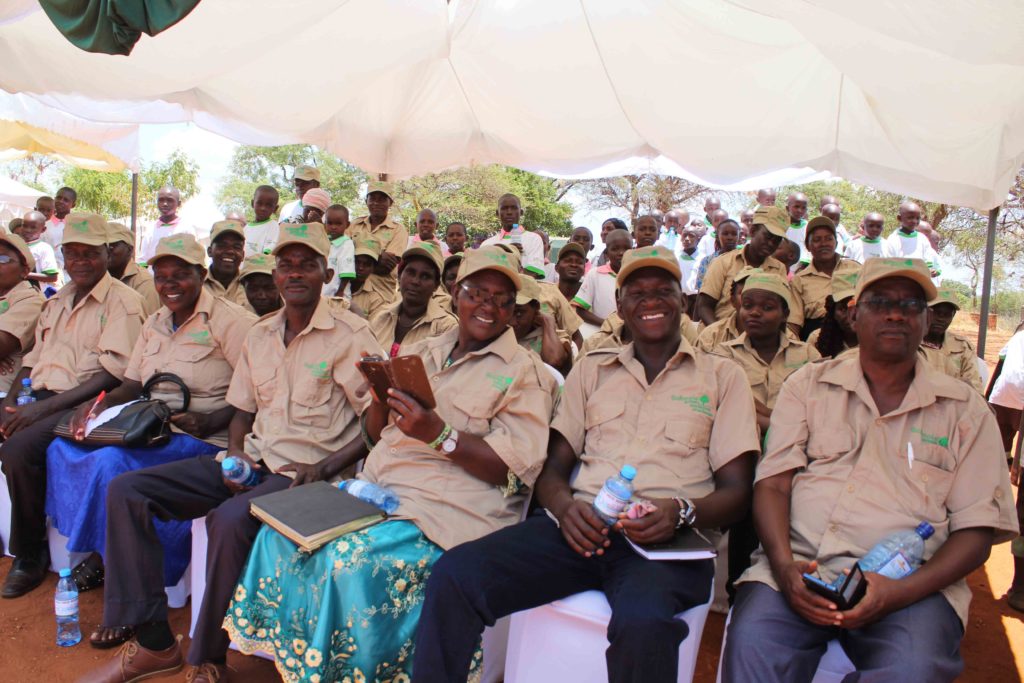
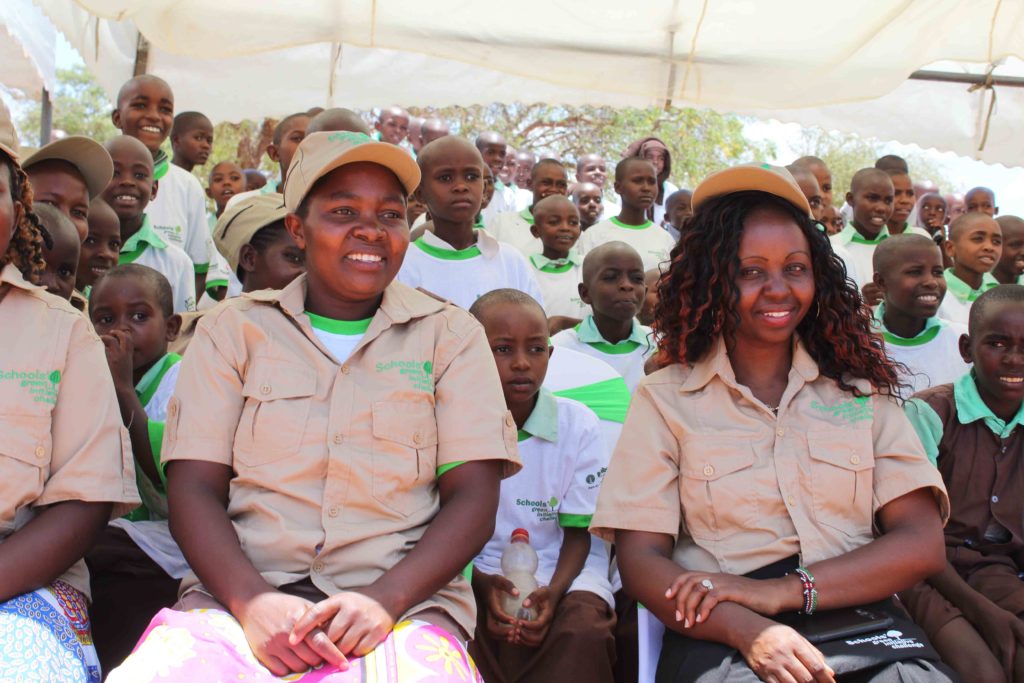
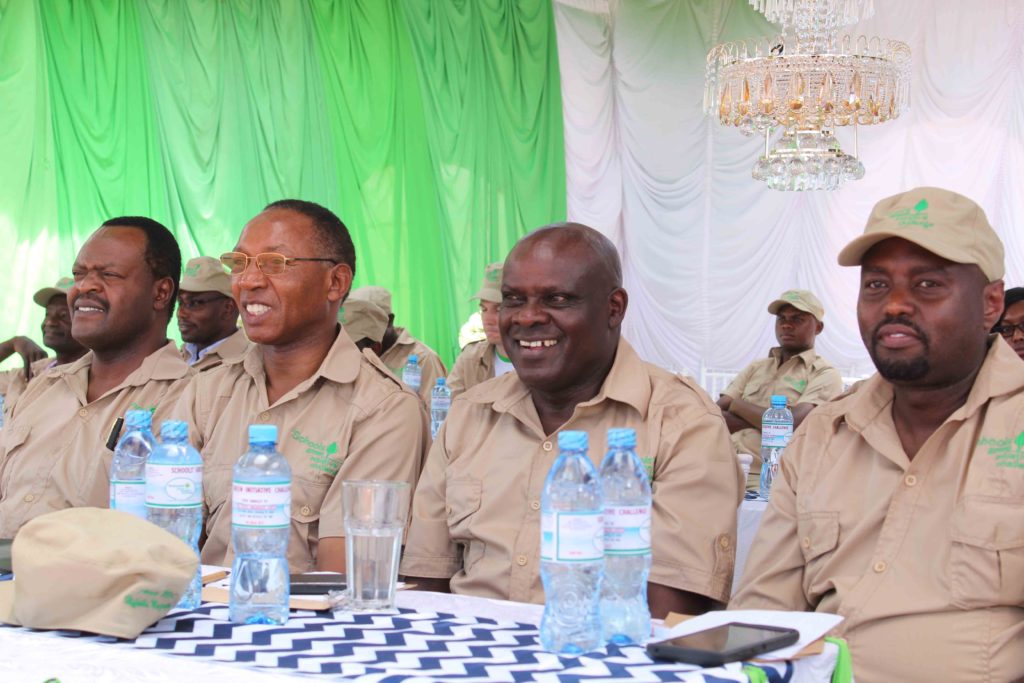
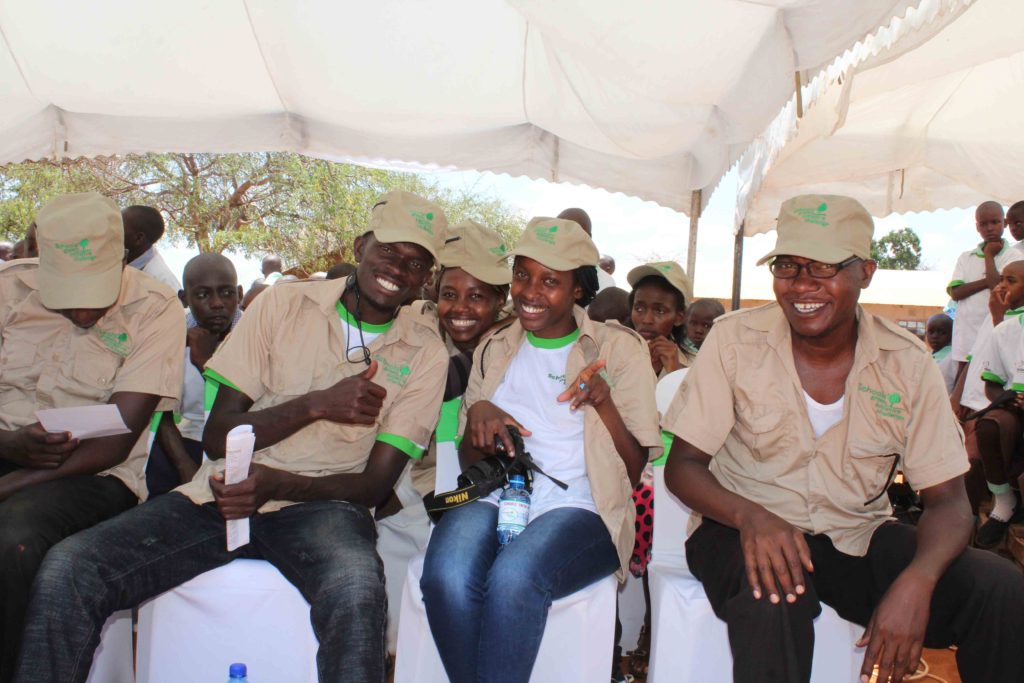
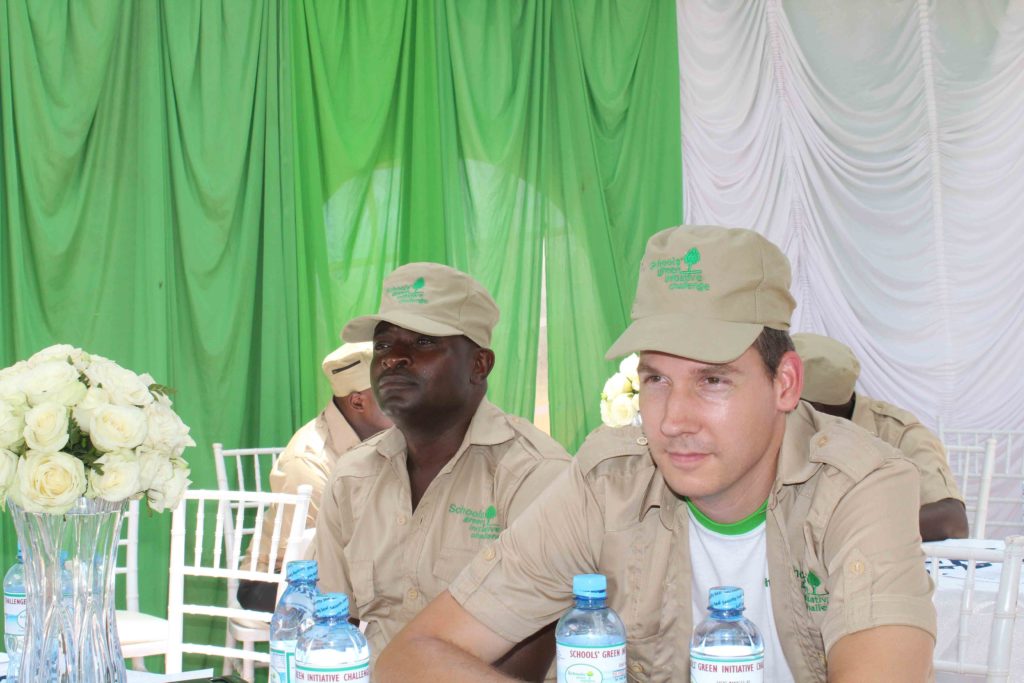
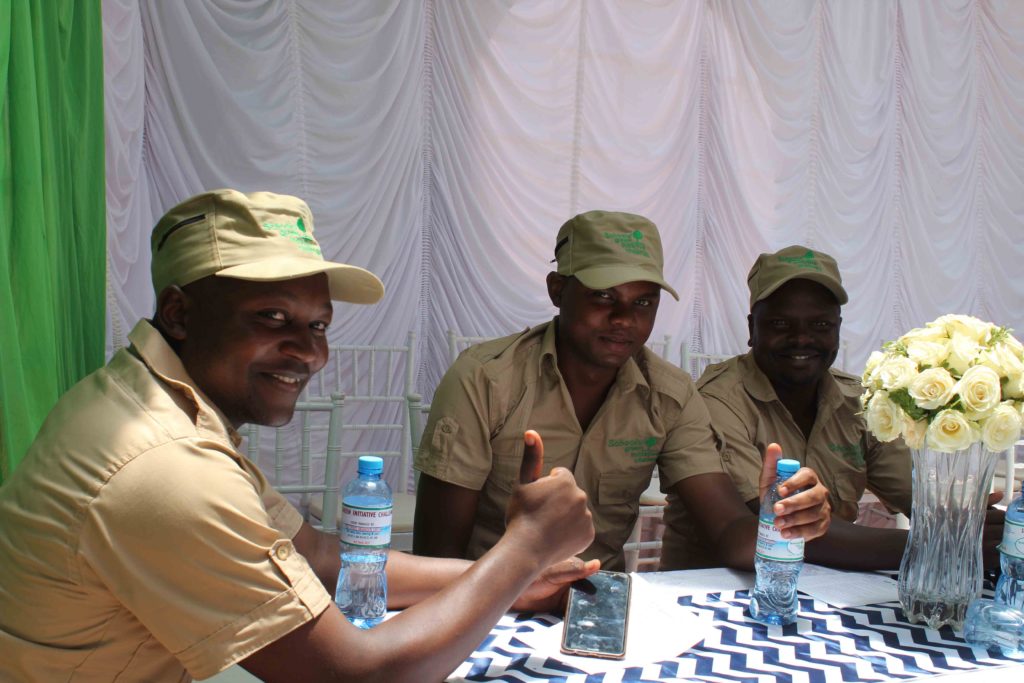
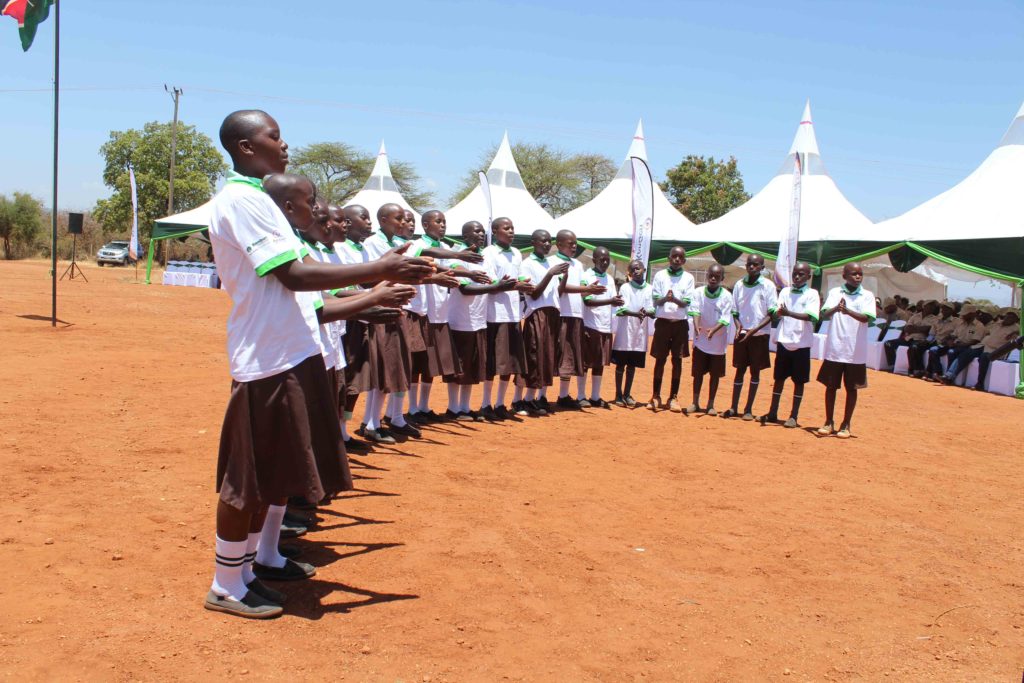
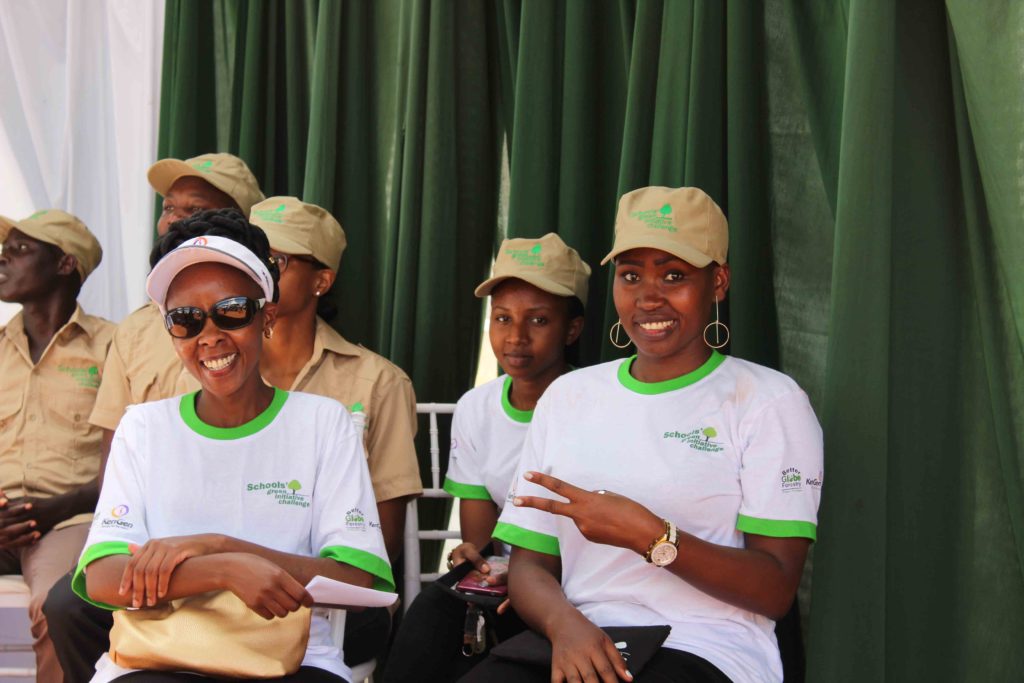
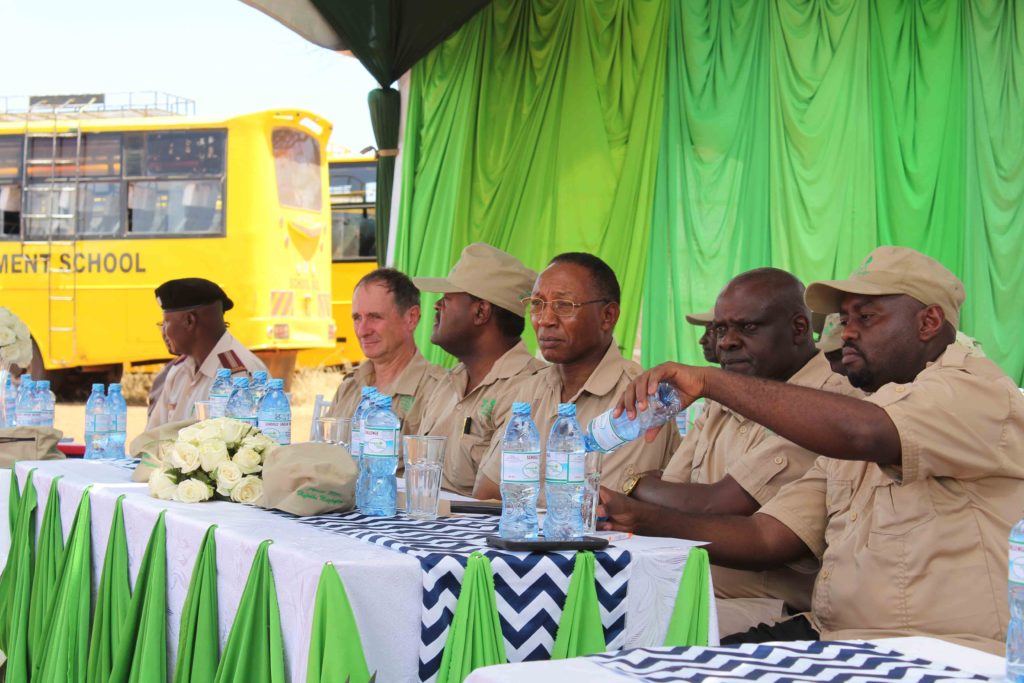
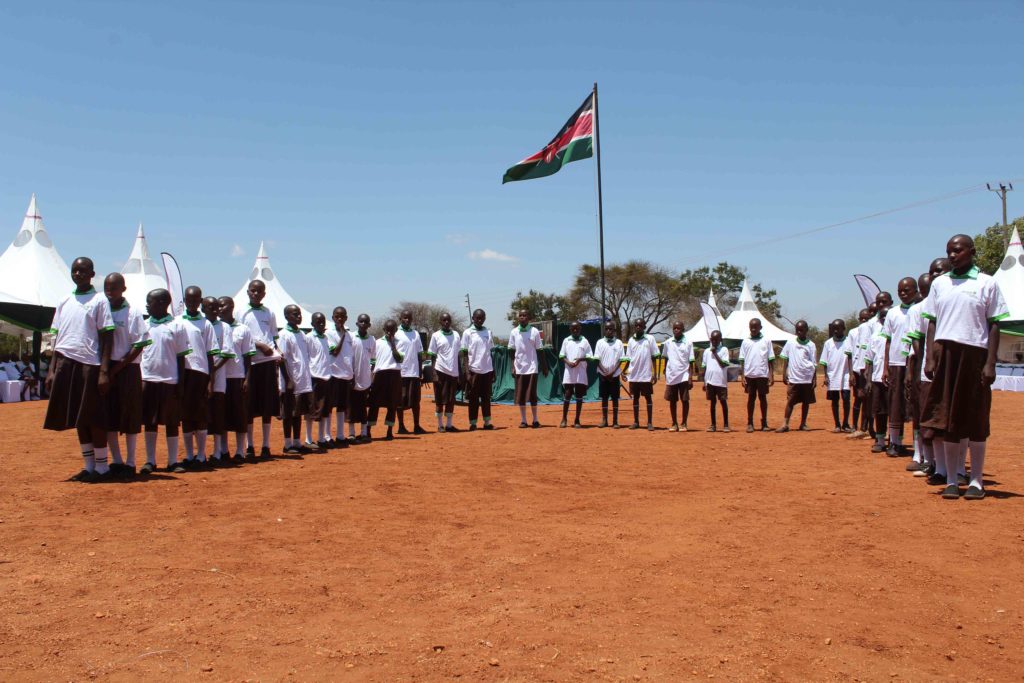
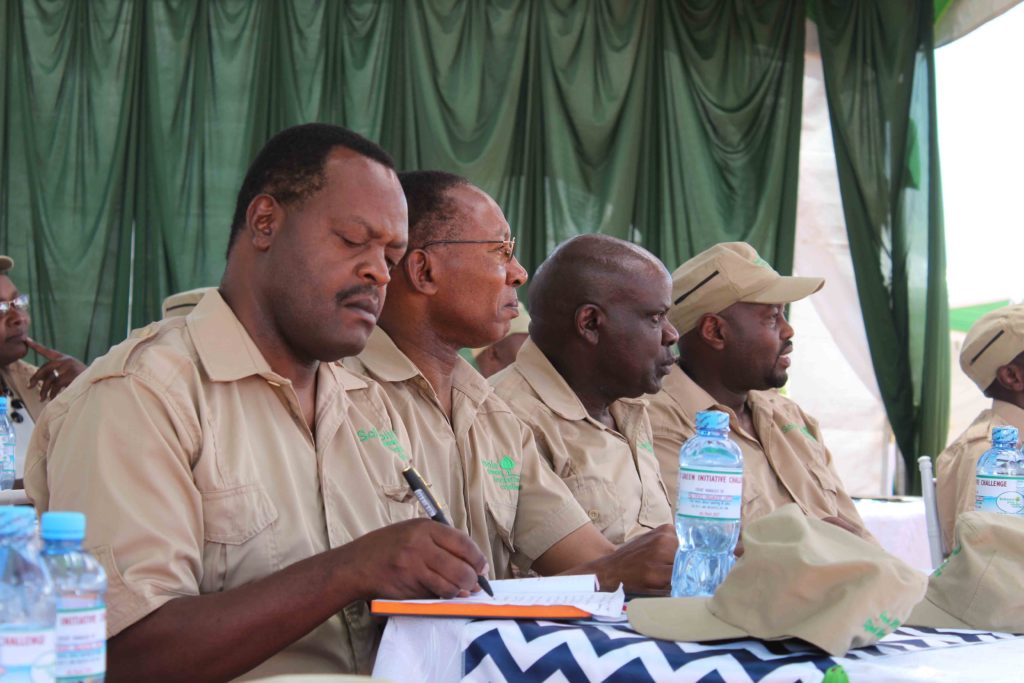
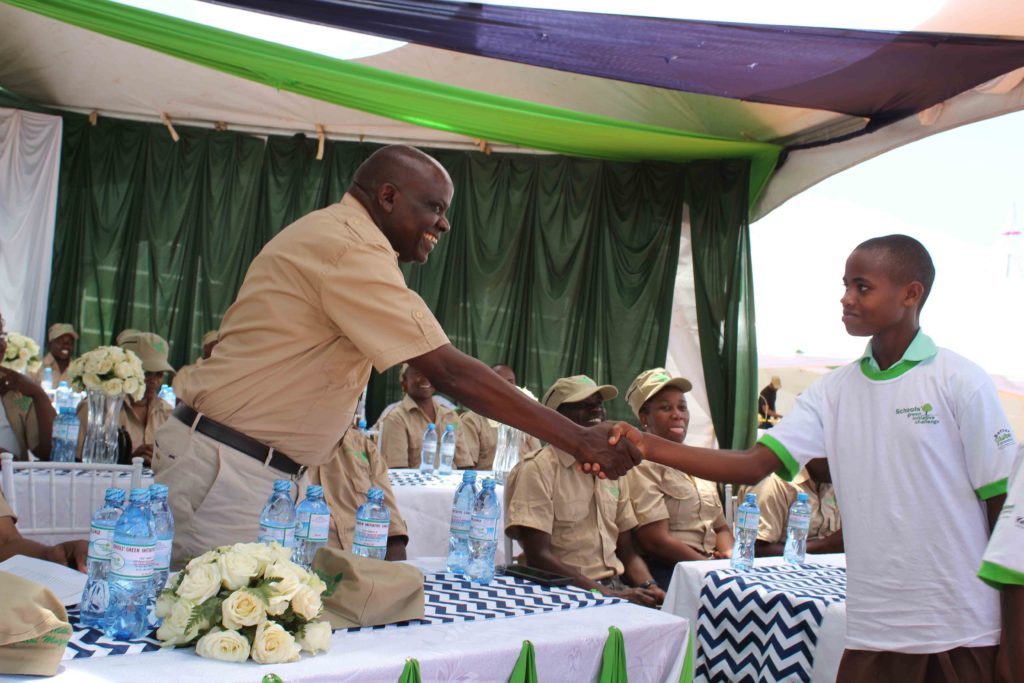
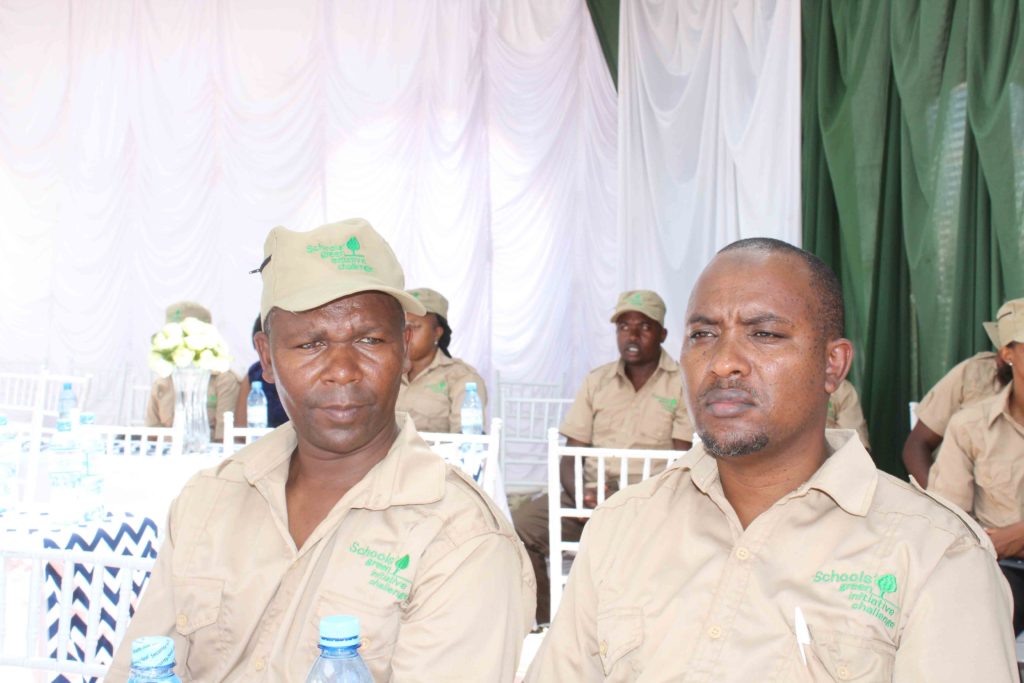
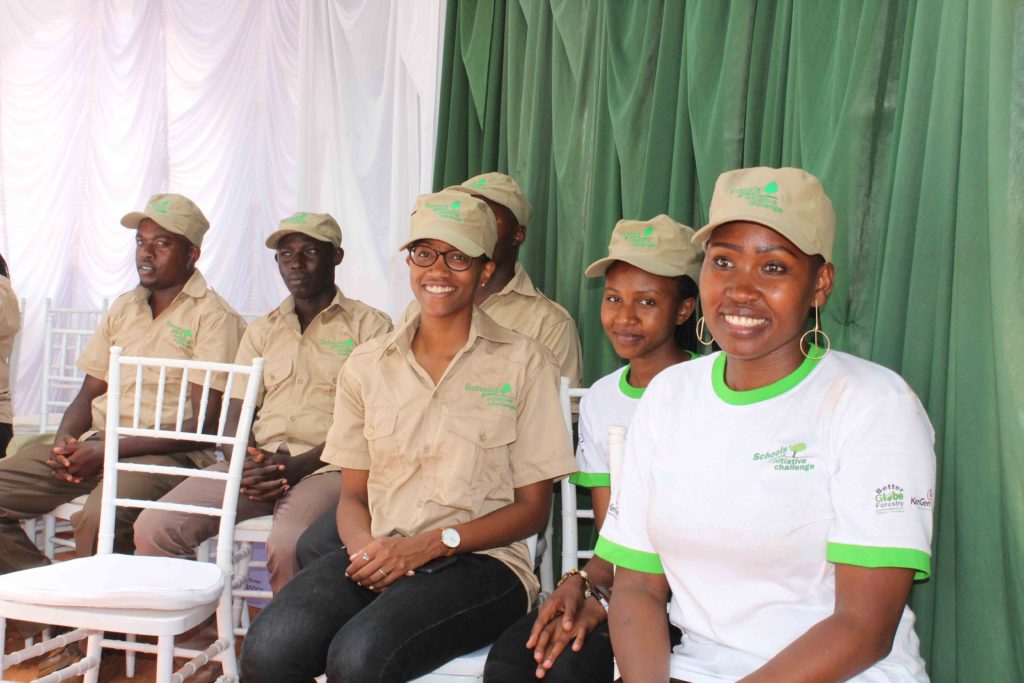
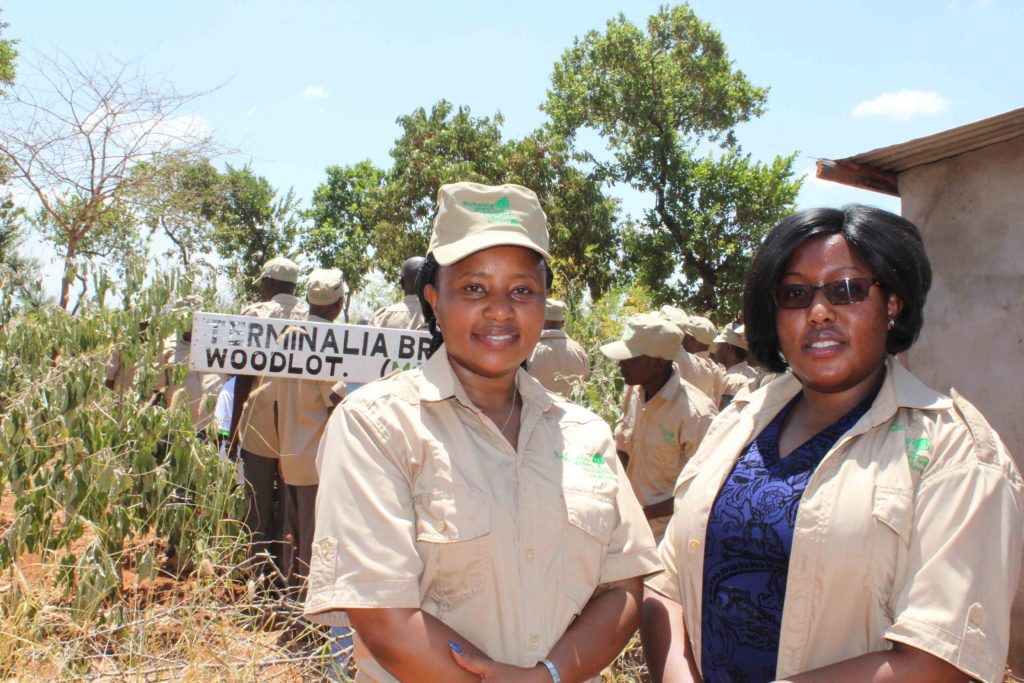
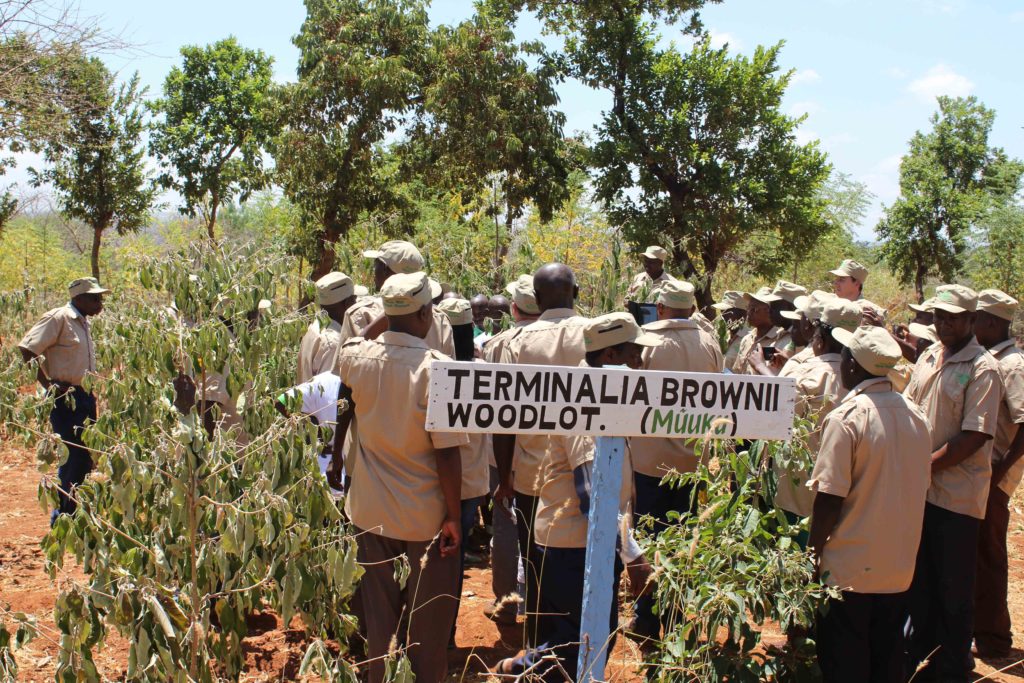
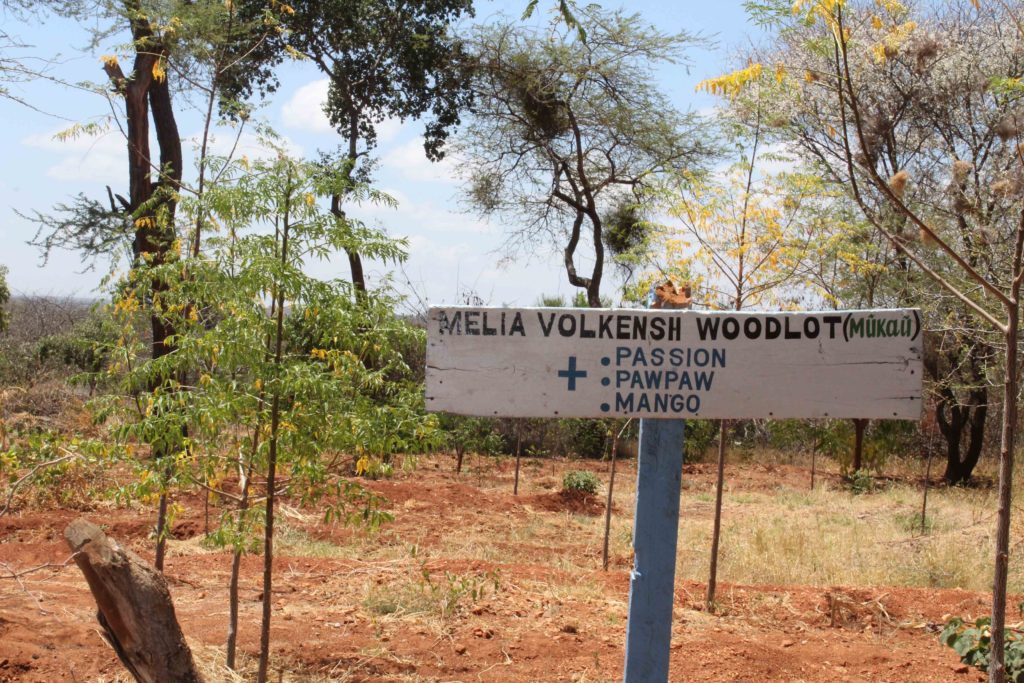
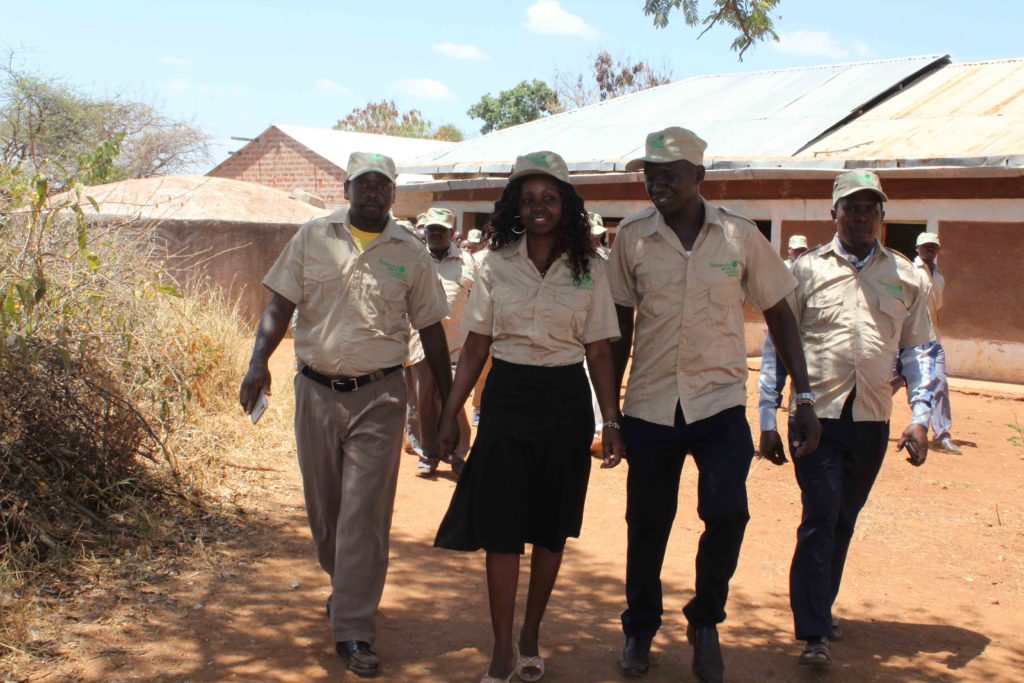
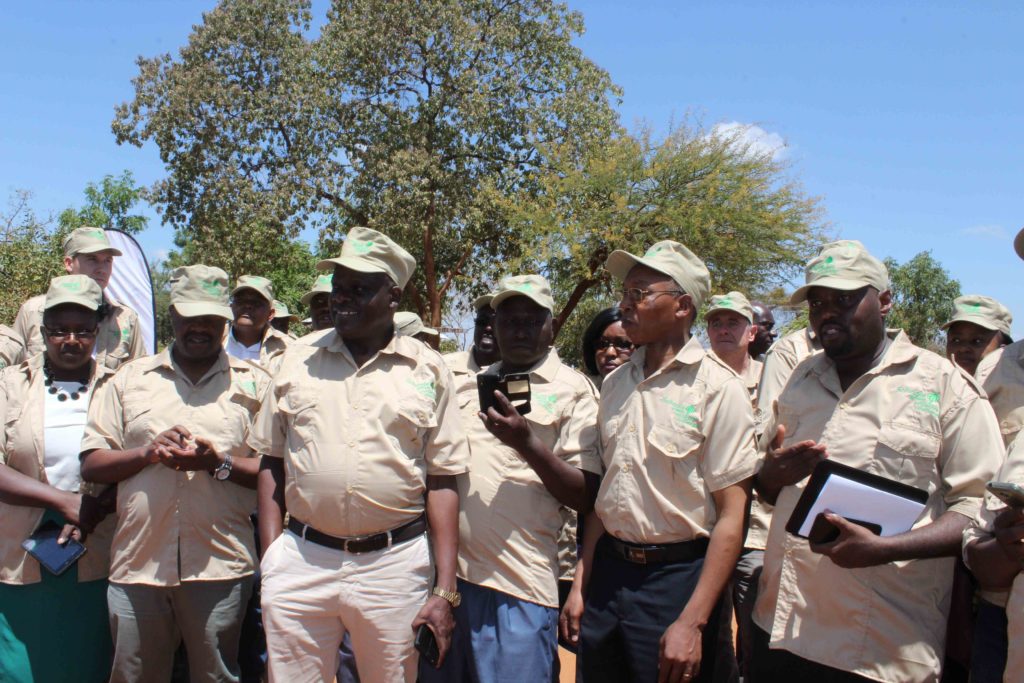
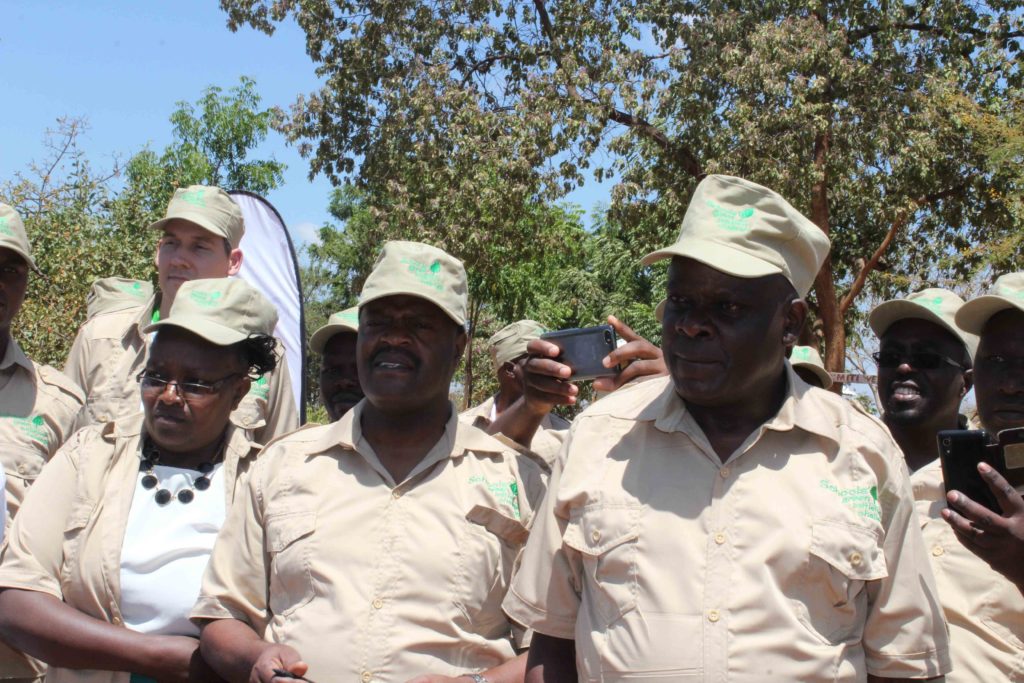
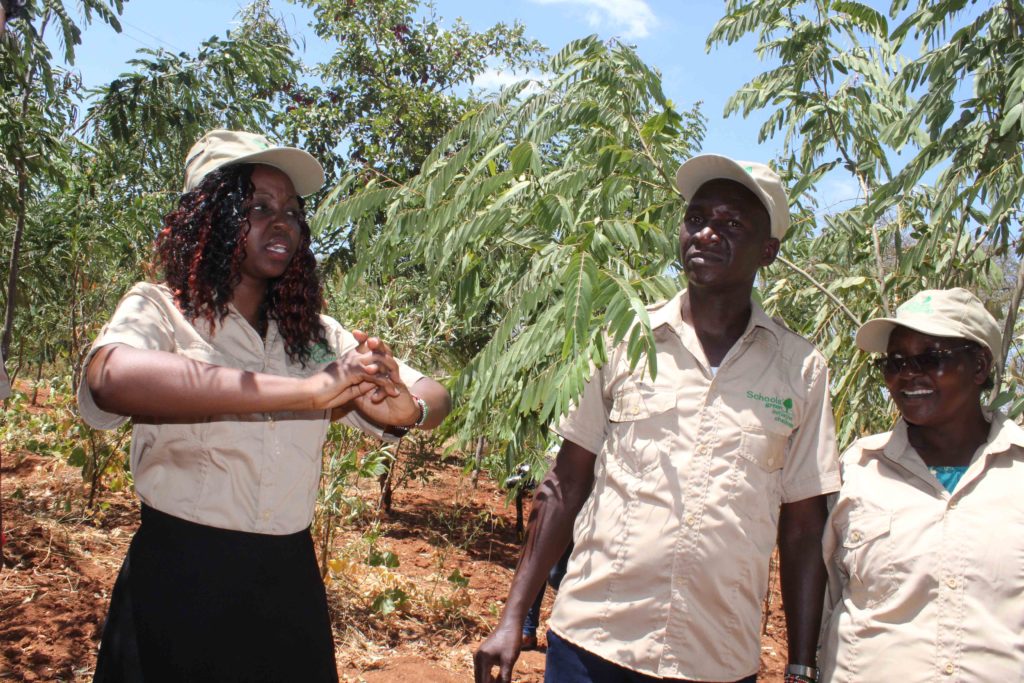
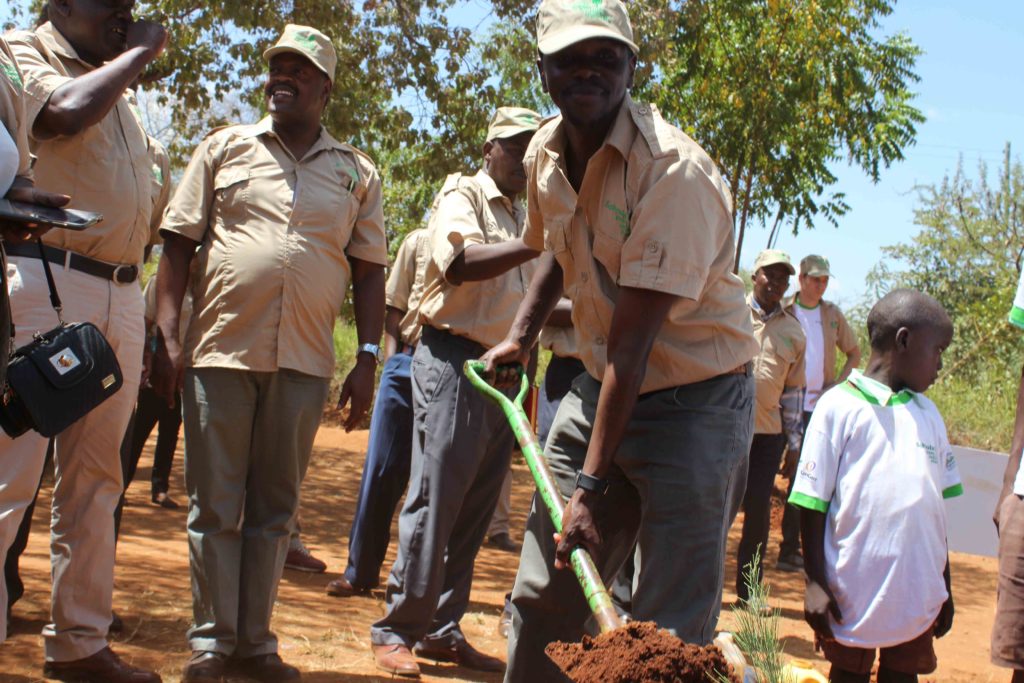
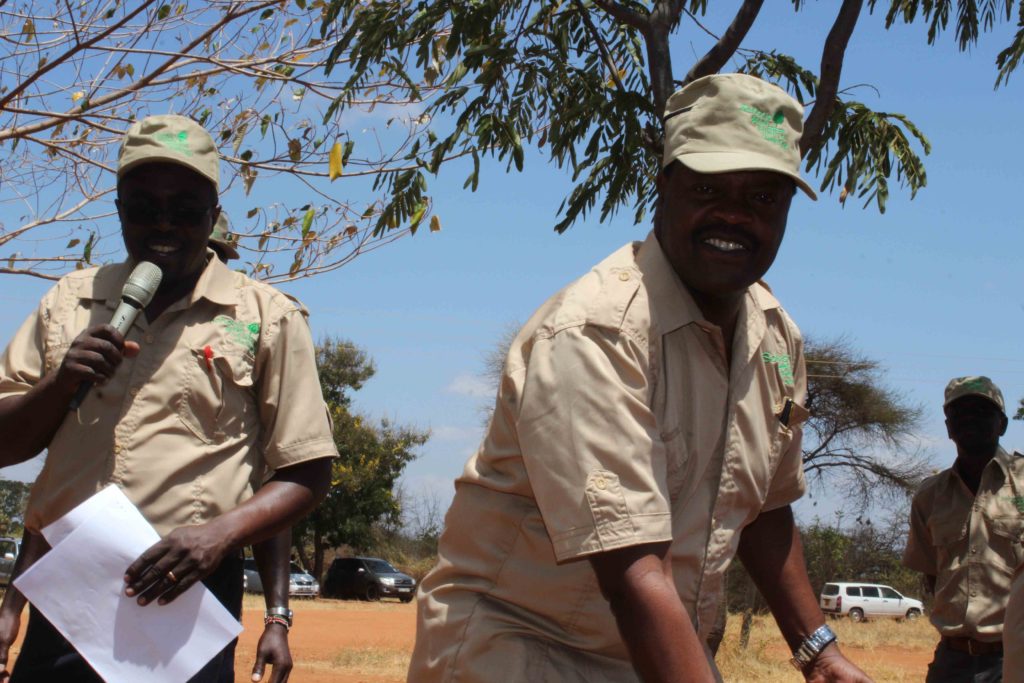
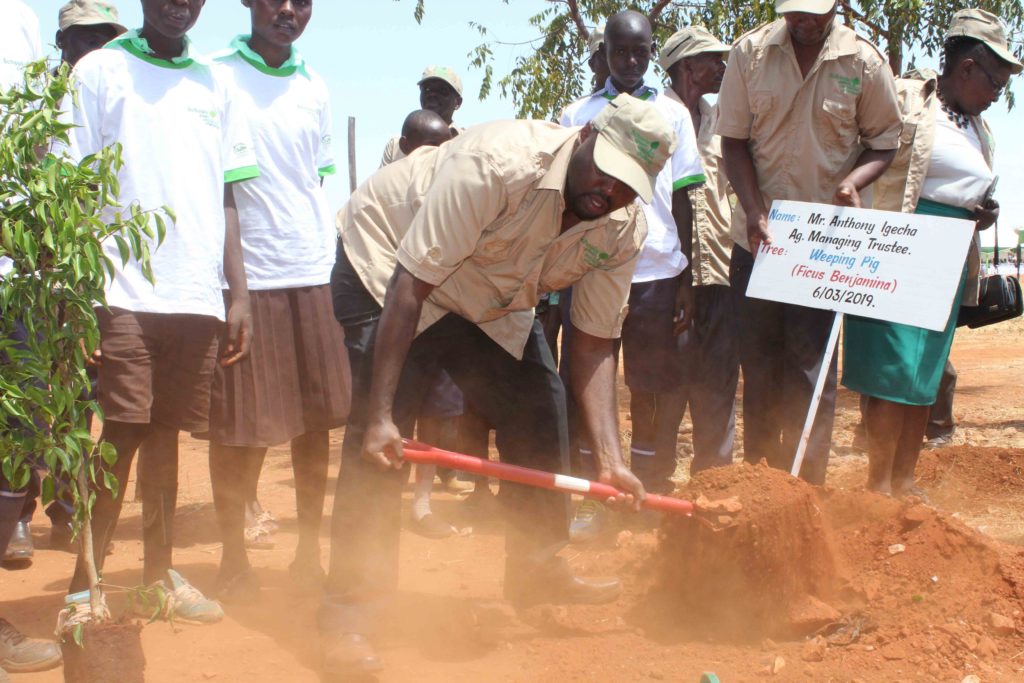
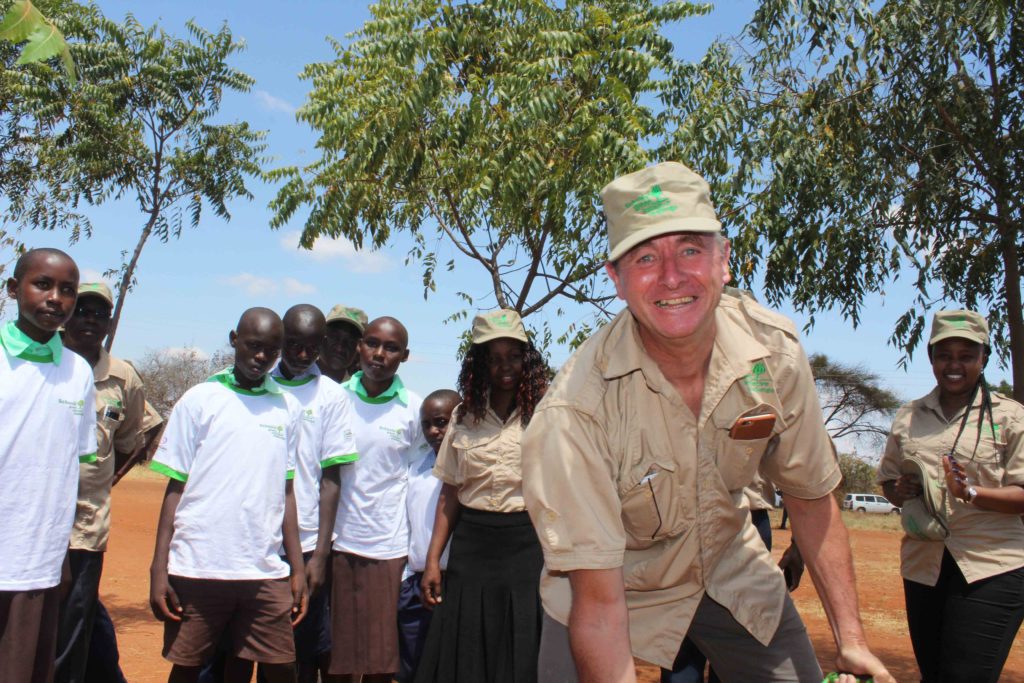
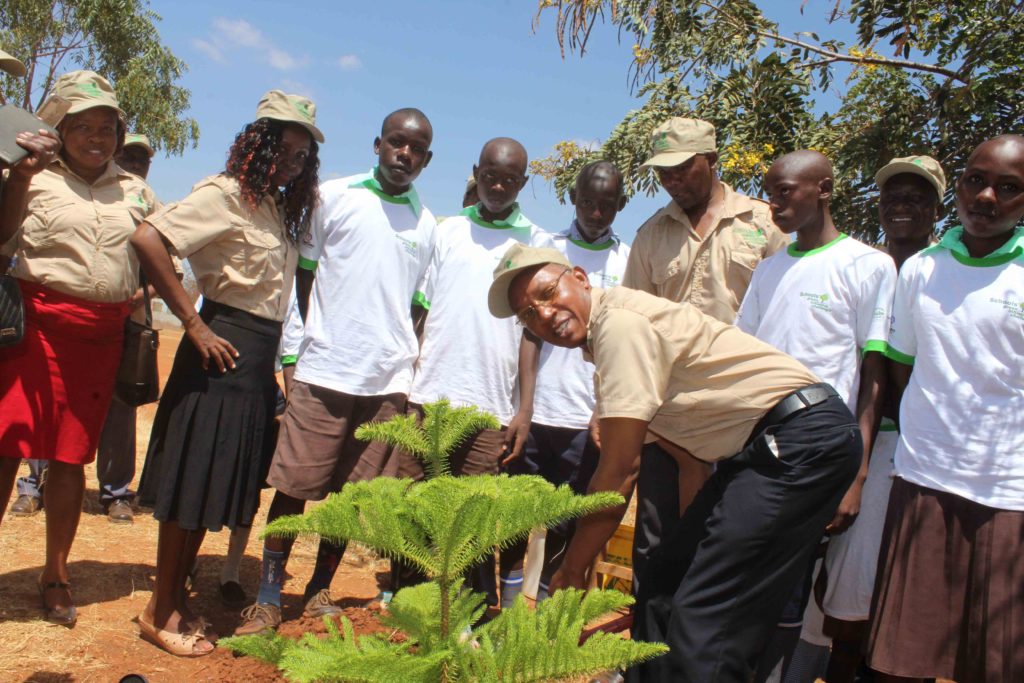
Jan Vandenabeele, Director of Better Globe Forestry said that the GIC acts as a catalyst in mitigating the adverse effects of climate change while at the same time economically empowering the community
Surprisingly, the tops schools also showed an improvement in their end of year exams performance, with Wikithuki Primary School recording 247 marks in 2018 compared to 216 marks in 2017, Kyusyani Primary improving by 31 marks to score 280 marks. Kwawanzilu Secondary School attained a mean score of 5.9 in 2018 against 2.7 in 2017.
READ ALSO: Surprise Win for GIC during KenGen’s 2018 G2G
Encompassing five of the 17 UN Sustainable Development Goals (SDGs) namely; No poverty (SDG1), Quality Education (SDG 4), Climate Change (SDG 13), Clean Water and Sanitation (SDG 6), and Partnerships for the goals (SDG17), the project is structured as a competition on proper tree management practices and seedlings survival rates.
The winning schools stand a chance to win educational tours, scholarships, infrastructural development, water tanks and rainwater-harvesting systems and cash awards among others.
KenGen Foundation’s acting Managing Trustee Anthony Igecha lauded the pupils of the winning schools as the true heroes of the project, and encouraged the Phase V competitors to embrace the project and make it a success.
Follow us on Twitter through @KenGen_Foundatn and like our Facebook page for more updates.
–Ernest Nyamasyo, Communication Officer

